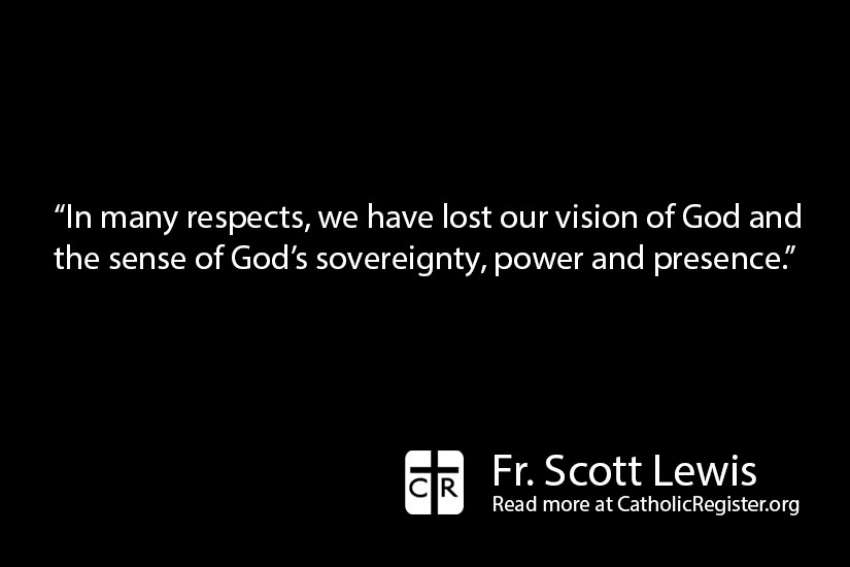The vision is certainly awesome enough — computer graphics couldn’t begin to do it justice. But what does it mean and why was it given? As with many apocalyptic visions, it appeared in a time of great stress and struggle, in this case the bloodshed and persecution of the Maccabean revolt in the mid-second century B.C.
Many had suffered and died because of their fidelity to the Torah and ancestral customs. For many, it seemed useless to resist, for the enemy seemed so powerful and overwhelming. The vision told a very different story. The dazzling and overpowering vision of the Ancient of Days revealed the power and majesty of the One who really ruled the world — God. Their tormentor, Antiochus Epiphanes, must have seemed puny and pathetic in comparison.
Elsewhere in Daniel’s visions, Antiochus is portrayed as the least of 10 horns. But the interpretation makes it clear that his days are numbered and his power illusory.
Things would soon be put right. An angelic figure with human appearance would be given supreme power to rule with justice. In its original context, the human-like figure could well have been Michael the Archangel. Centuries later, the New Testament authors reinterpreted this image as Jesus.
This vision gave hope and courage to people at the time. God was in charge and would prevail over all the evil forces mustered against the Holy One. The time in which we live can also benefit from meditating on this vision.
In many respects, we have lost our vision of God and the sense of God’s sovereignty, power and presence. The darkness of our own time can be dispiriting and overwhelming. But the entire world stands accountable to God, and God works constantly to ensure the divine will is accomplished.
When we labour for a world of justice, compassion and kindness, we are in harmony with the power of Heaven depicted in the vision. When we surrender to selfishness, fear, greed and violence, we give aid and comfort to the dark forces depicted in Daniel’s night vision. The choice is ours.
Those close to Jesus had a glimpse of that power and glory. Wanting to reassure his community of the truth of his witness, the author of 2 Peter appealed to the voice from Heaven designating Jesus as the Beloved Son. They had been there, they heard the voices, they were not making it up.
God’s plan of redemption continued to unfold and believers need to remain focused on their faith in the risen Lord. This faith is the lamp that still guides us.
Sometimes people become transfixed and paralyzed in the face of divine shock and awe, forgetting the meaning and purpose of these encounters. Jesus took His inner circle to the mountaintop, where they saw Jesus as they had never seen Him before — transfigured and radiating dazzling light. Not only that, Jesus was talking with Moses, the giver of the Law, and Elijah, the prophet whose return would herald the end of days and the visitation of God.
The same voice that affirmed the Sonship of Jesus at His baptism spoke again, with the same message, adding the command to listen to Jesus. Peter did not know what to say, but he instinctively did what most people do — he wanted to capture and preserve the experience. Building three booths or shrines would anchor the revelation that they just received to a particular time and place, making it “sacred” but effectively robbing it of its power. Jesus immediately took His disciples and descended from the mountain, silencing them until after the Resurrection.
It is at this point that Jesus began His journey to Jerusalem, prophesying on the way of His passion and death. At the same time, he repeatedly urged His disciples to follow in His footsteps.
When the Word of God is revealed, it is dynamic and vital, always on the move. Genuine religious experience is always expressed in deepening of faith, compassion, mercy, commitment and service.


